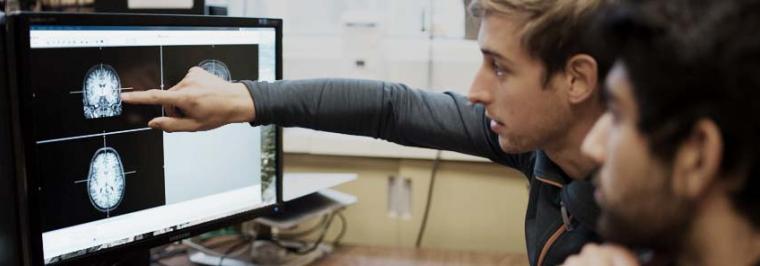
This Co-op program gives you a head start exploring career options with the opportunity to work in various research areas within the field of health and biomedical research. Many of our placements will put you at the cutting edge of science and will give you an opportunity to put into practice what you have learned in school. Your work experience will take the form of work placements at a variety of different organizations in Canada and potentially internationally. You will begin your work terms after completing your third academic year. Completion of all four work terms is required in order to receive a Co-op designation.
Application Deadlines
| Apply in Year (At Time of Application Deadline) | Application Deadline Date |
|---|---|
| 3 | Thursday, October 1, 2026 |
Application requirements
For October 2026 applications, must be a third-year student enrolled in Neuroscience major at UBC, and in 3rd year of their Neuroscience degree at the time of application deadline.
- Have a minimum cumulative average of B- (68%)
- Be a full-time UBC (Vancouver) student in good academic standing in mathematics, English and the sciences
- For Oct 2026 applicants, have at least 30 credits remaining of your graduation requirement after completion of Fall 2026 (Sept - Dec 2026) and Winter 2027 (Jan - April 2027) courses
- Please note that if as a 3rd year Neuroscience student, you do not have at least 30 credits remaining per above, you can still apply but need to ensure you answer the questions on the application regarding number of credits remaining and rationale
- If unsure re: number of credits remaining, please consult Science Advising
- Good communication skills, and a responsible, mature attitude
- Demonstrated leadership, teamwork and time management
- Demonstrated interest in your chosen field
- Be flexible and willing to accept a work placement outside the Lower Mainland
- Students who are in their 4th year of Neuroscience degree at the time of application (and who were assigned 3rd year class standing during the Winter 2025-2026 term or during the Summer 2026 terms per Workday) are not eligible to apply
Course Recommendation:
In consultation with the faculty, students are highly encouraged to take the following courses prior to starting their first work term:
- PSYC 277 / NSCI 210
- PSYC 278 / STAT 200
- NSCI 300
- BIO 371 / PSYC 370
NOTE: Being eligible does not automatically guarantee your acceptance into the Co-op Program.
Work terms schedules
| Year | Fall | Winter | Summer |
|---|---|---|---|
| 1 | Study Term 1 | Study Term 2 | - |
| 2 | Study Term 3 | Study Term 4 | - |
| 3 | Study Term 5 + Apply | Study Term 6 + Co-op Workshops | Work Term 1 |
| 4 | Work Term 2 | Work Term 3 | Work Term 4 |
| 5 | Study Term 7 | Study Term 8 + Graduate | - |
This highly recommended schedule enables students to complete their program within the shortest time frame. Alternate scheduling is available in consultation with your coordinator.
Sample Jobs and Companies
Non-Invasive Neurostimulation Therapies (NINET) Lab
As a research assistant at the Non-Invasive Neurostimulation Therapies (NINET) Lab, your duties and responsibilities include, but not be limited to deliver neurostimulation treatment: Repetitive Transcranial Magnetic Stimulation (rTMS); review of patient files and treatment plans and prepare daily equipment and materials for treatment; ensure timelines and cleanliness of treatment room and ensure supplies are stocked; dutifully check each day to ensure all updates to treatment plans are implemented; may prepare posters and PowerPoint presentations; administer questionnaires as per clinical directions in the clinic; correspond with physician(s) and/or nurse practitioner with regard to patient care, questions, extenuating circumstances, affecting parties as major concerns arise; maintain an archive of rTMS treatment-related patient materials (e.g.TMS caps, old patient files, patient personal support items kept on premises); transcribe patient data into study report forms, and perform data entry, score instruments (e.g., tallying scores, checking scores for accuracy) completed by patients and clinicians; process and time-label blood and urine samples for studies (i.e., freezing blood and organizing samples etc.; does not draw or centrifuge blood); edit and assemble protocol material (e.g., consents, ethics, protocols, patient information sheets); complete literature reviews and Internet searches, and retrieving articles from the library and conduct EEG-NIRS, TMS-EEG, and tDCS.